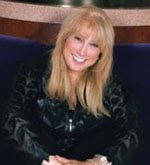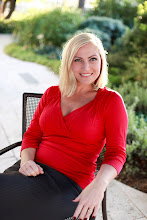I recently received an e-mail from a Columbia School of Journalism student working on a project about the Barbara Kogan case out of Manhattan on New York City's Upper East Side. As cases go, the more I dig into this one, the more intriguing it becomes. At first glance, it looked like a slam dunk for the prosecution, that Barbara had conspired with her former attorney to hire a hit man to knock off Barbara’s soon-to-be ex-husband, George, all for the insurance money. After all, once Barbara and George were divorced, Barbara would no longer be the beneficiary.
In May 2008, the attorney, Manuel Martinez (below center), was convicted of hiring the hit man. The prosecution was looking good in the murder-for-hire case. But by the time Barbara was indicted six months later, it was nearly 19 years after the shooting death of George Kogan (below leftmost) in October 1990. Then, a judge tossed out the murder charge and Barbara, deemed a flight risk by the judge, remains jailed in Rikers Island awaiting a murder-related charge to be refiled by the district attorney's office.
In May 2008, the attorney, Manuel Martinez (below center), was convicted of hiring the hit man. The prosecution was looking good in the murder-for-hire case. But by the time Barbara was indicted six months later, it was nearly 19 years after the shooting death of George Kogan (below leftmost) in October 1990. Then, a judge tossed out the murder charge and Barbara, deemed a flight risk by the judge, remains jailed in Rikers Island awaiting a murder-related charge to be refiled by the district attorney's office.
But sometimes things are less simple than they seem. Over time, I’ve learned that the Kogan investigation is anything but a cut-and-dry killing. It’s a circumstantial evidence case -- no smoking gun, no eye-witnesses to the conspiracy, no hard evidence -- that makes it a much tougher case for the prosecution. Clearly, Barbara was a disgruntled wife whose husband had left her to move in with his new mistress(below far right). And George was wealthy. So that very well could have been a motive. But with or without insurance money, given the length -- around 25 years -- of the Kogans’ marriage, Barbara was going to end up with a large sum of money, one way or the other.
 Talking with the student about the case, one he was well versed in, reminded me of how important credible sources are to journalists and authors -- especially when it comes to true crime. I’m in the midst of writing a book about the case for St. Martin’s Press (due out next year), so I'm mired in it. The student was interviewing people surrounding the Kogan murder and running into the same stumbling blocks all writers do at all levels, when we go snooping around. Sources are so important that they’re protected in many states and federally with shield laws so that they're not easily revealed.
Talking with the student about the case, one he was well versed in, reminded me of how important credible sources are to journalists and authors -- especially when it comes to true crime. I’m in the midst of writing a book about the case for St. Martin’s Press (due out next year), so I'm mired in it. The student was interviewing people surrounding the Kogan murder and running into the same stumbling blocks all writers do at all levels, when we go snooping around. Sources are so important that they’re protected in many states and federally with shield laws so that they're not easily revealed. It’s even more important today, with the advent of citizen journalists releasing information with rapid-fire speed on social media sites, to be extra careful in our dissemination of information as we uncover it. Like it or not, we're held to a higher standard than ever before.
It’s our job as writers to get the facts straight. Besides analyzing the case and scouring scores of legal documents, we have an ethical requirement to interview sometimes hundreds of people, even knocking on doors to reach them, to balance out the story, tell both sides and, hopefully, get it right.
And that’s my point: the importance of getting it right. I tried to instill in students, when I taught journalism at the University of Nevada, Las Vegas, how important it is to check and double-check the facts. It doesn't matter whether it's a short newspaper story, large magazine piece or lengthy nonfiction book. We owe at least that much to the people we write about.
Tweet
























4 comments:
I dont know why people insist on the necessity of eye witness testimony when it seems to be the LEAST reliable. Arent most of those individuals who are exonerated post conviction with DNA, originally convicted by eye witness testimony? jmo
"Lies like an eyewitnes" was a popular phrase around courthouses for decades. It is the least reliable and if the murderer is sensible the least likely to be available evidence.
Concerning getting it right: "... once divorced, Barbara would no longer be the benefactor." Did you perhaps mean beneficiary?
FleaStiff,
Good catch. I've corrected the word to "beneficiary." That's the kind of error I'm supposed to catch, so thank you. Ed.
I am finding it hard to find any journalists to help me with all the documents and pieces of information I have in my cases going right now. I have a self-imposed deadline for getting these papers in order, finally, and in the mail to who they need to go to. I have legal cases going in two states. I have to finish what I started because I have decided not to be a victim anymore. I am a citizen journalist hoping to live in the light of the objective truth, tired of being a victim. I appreciate your concern over accuracy. It is something that more people in more fields should aspire to. Sad to say, I have learned it is not the case. I don't say anything publicly I can't prove. The title of your piece really caught my eye for I have been reflecting on what is being taught about reasoning and what has been taught in years past. Kudos to you for caring about accuracy!
Post a Comment